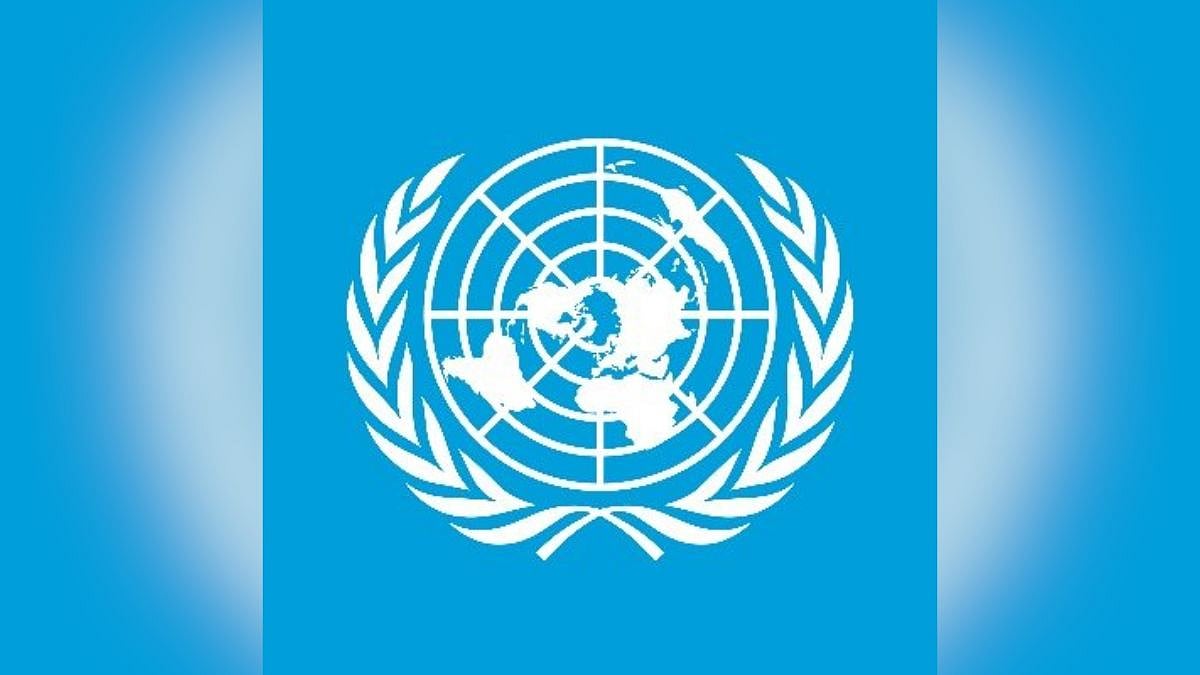UN Security Council To Hold Closed Consultations Today On India-Pakistan Tensions After Islamabad Seeks Emergency Meeting | X @UN
United Nations: The UN Security Council will hold closed consultations Monday on the situation between India and Pakistan after Islamabad sought an emergency meeting on the issue.
Pakistan currently sits as a non-permanent member of the powerful 15-nation Security Council, which is being presided over by Greece for the month of May.
Islamabad “requested closed consultations” on the tensions between the two countries and the Greek Presidency has scheduled the meeting for May 5 in the afternoon.
Apart from the five veto-wielding permanent members — China, France, Russia, UK and the US — the 10 non-permanent members in the Council are Algeria, Denmark, Greece, Guyana, Pakistan, Panama, South Korea, Sierra Leone, Slovenia and Somalia.
Amid rising tensions between the nuclear-armed South Asian neighbors following the April 22 Pahalgam terror attack, Permanent Representative of Greece to the United Nations and President of the Security Council for the month of May Ambassador Evangelos Sekeris had last week said that if a request comes for a meeting to discuss the situation between India and Pakistan, “then. I think this meeting should take place because, as we said, maybe it’s also an opportunity to have views expressed and this might help to diffuse a bit of tension.” “We are in close contact…but this is something which might happen, I would say, sooner rather than later. We will see, we are preparing,” Sekeris had said.
In response to a question by PTI on India being a victim of cross-border terrorism emanating from Pakistan, which now sits in the Council as a non-permanent member, and need to commit terrorism, Sekeris said “It’s an issue which is very pertinent.” “As I said before, as a position of principle, we strongly condemn any act of terrorism and this is what we did” on the “heinous terrorist attack” that took place in Pahalgam in which innocent civilians died, Sekeris said.
Sekeris noted that “we express our condolences to the government of India, Nepal and the families of victims. This is a position of principle. We condemn terrorism in all its forms, everywhere it is happening. On the other hand, we are concerned about this tension which is mounting in the region. Two very big countries. Of course, India is far more bigger” than Pakistan.
EAM Dr S Jaishankar Speaks With Council Members
In the weeks following the Pahalgam terror attack in Jammu and Kashmir in which 26 civilians were killed, External Affairs Minister S Jaishankar spoke with all Council members, with the exception of China and Pakistan.
In his calls, Jaishankar underlined that “its perpetrators, backers and planners must be brought to justice.” Jaishankar had a “good conversation” with Greek Foreign Minister George Gerapetritis and had “discussed the Pahalgam terrorist attack.” India had welcomed Greece’s firm opposition to cross-border terrorism and “our Strategic Partnership reflects the depth of our ties,” Jaishankar had said.
He also spoke with UN Secretary General Antonio Guterres, Russian Foreign Minister Sergey Lavrov, US Secretary of State Marco Rubio, UK Foreign Secretary David Lammy, French Foreign Minster Jean-Noël Barrot, South Korean Foreign Minister Cho Tae-yul, Danish Foreign Minister Lars Løkke Rasmussen, Minister of Foreign Affairs and International Cooperation of the Republic of Sierra Leone Timothy Musa Kabba, Algeria’s Minister of Foreign Affairs Ahmed Attaf, Foreign Minister Hugh Hilton Todd of Guyana, Slovenia Foreign Minister Tanja Fajon, Foreign Minister Abdisalam Abdi Ali of Somalia and Panama Foreign Minister Javier Martínez-Acha Vásquez.
Last Friday, Pakistan’s Permanent Representative to the United Nations Ambassador Asim Iftikhar Ahmad had said at a press conference in the UN that his country has the right to convene a meeting when we feel appropriate.
“We see that all of this that is happening is in the context, in the backdrop of the situation in Jammu and Kashmir,” Ahmad had said.
“Here it is evident that there was an incident but now what has evolved in terms of the situation which is a real threat to regional and international peace and security, and we believe that the Security Council, in fact, has the mandate, and it would be very legitimate for any member of the Council, including Pakistan, to request a meeting, a discussion of the Security Council, to consider this very serious situation that has evolved. We have discussed that with the Council members. We have discussed that with the in fact, the previous, last month’s presidency, and this month’s presidency. We are observing the situation very closely, and we have the right to convene a meeting when we feel appropriate,” Ahmad had said.
The Pakistani envoy had last week met Guterres and briefed him about the security situation in the region.
(Except for the headline, this article has not been edited by FPJ’s editorial team and is auto-generated from an agency feed.)
